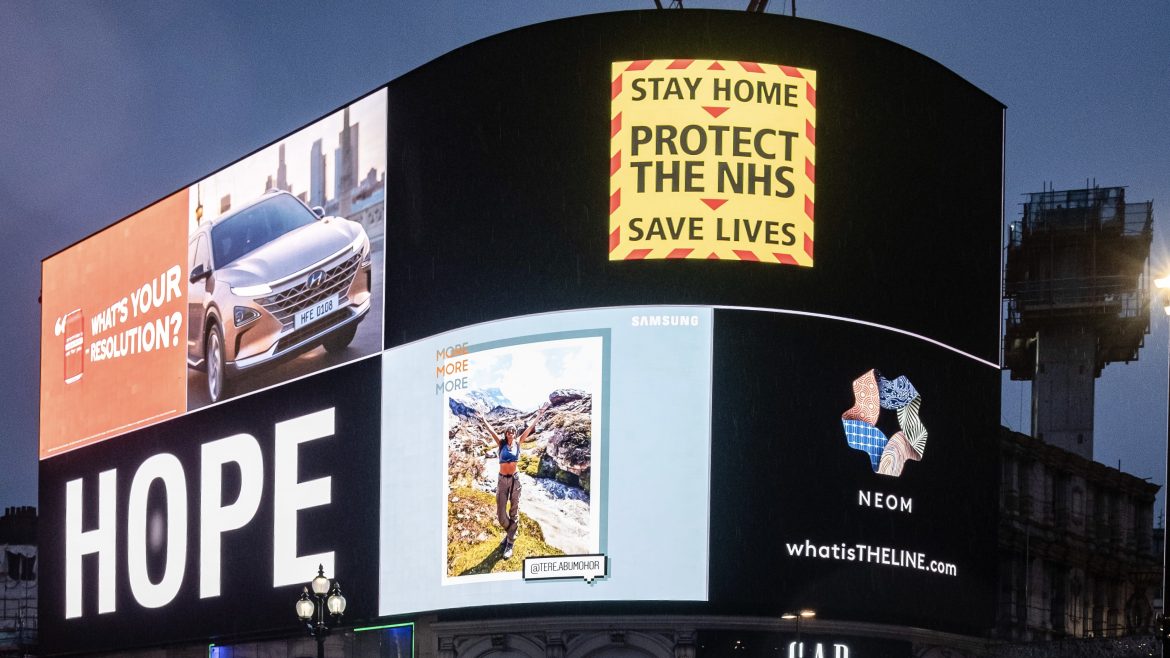There is light at the end of the Covid tunnel. The vaccine rollout is underway, both the number of cases and the number of deaths have been decreasing since January, and the government recently released its roadmap for the UK to return to normal life.
Almost two-thirds of 20-25 year olds living in England found the current lockdown to be harder than the March 2020 one, compared to less than a quarter who found it easier, according to a poll of over 200 young people conducted by the Kingston Courier in late February.
“This lockdown has been longer and it is getting tiring. There is less energy and the colder, darker days do not help. It feels like we took a step back whilst other countries went forward,” said Brontë Skelcher-Maxwell, a marketing executive from Hammersmith.
However, despite this sentiment being shared by many, almost three-quarters of those polled felt that something positive has come from the latest stay at home order.
Examples such as being able to save money, spend time with family, and a newfound appreciation for normalcy were given.
Giorgie Altomare, a research executive from Surrey, said: “I have been able to pick up some new hobbies whilst also spending more quality time with my family at home.”
Despite the many struggles a national lockdown brings, there is no denying that the stay at home orders have proven effective at reducing the transmission rates of Covid-19.
However, it should come to the surprise of no one that the stay at home order has not been universally adhered to.
When asked how frequently, if at all, they had broken lockdown, 35 per cent said they had broken it ‘a few times’, compared to only 20 per cent who have not broken it at all.
The three most commonly cited reasons for breaking lockdown were to visit a partner, go for a walk with friends or to help a family member.
On February 22, a few days before the survey was conducted, Prime Minister Boris Johnson announced the government’s roadmap for the easing of Covid restrictions, targeting June 21 as the date he hopes all Covid restrictions will be lifted, and we can go back to a ‘normal life’.
But with his handling of the pandemic questioned by many since the start, belief in his roadmap is far from universal. That being said, it offered many the hope of a somewhat normal summer.
When asked whether they thought the June 21 target was a realistic one, 68 per cent felt it was, with the efficiency of the vaccine rollout, mixed in with a drop of positive mental attitude, as the main reason behind the optimism.
“The priority groups are predicted to be vaccinated by April. If they’re protected and we continue social distancing, the infection rate will go down,” said Georgie Mills, a research assistant from Surrey.
The optimism was not universal however, with Inês Teixeira-Dias, a writer from Berkshire, saying: “The prime minister has consistently entered lockdowns too late and lifted them too early. You can’t pre-set dates in a pandemic.”
Upon the reveal of Johnson’s roadmap, the public rushed to make summer plans. Holidays were booked, tickets to live events were snapped up, and seats were reserved at favoured watering-holes up and down the county. The desire to have something tangible to look forward to was clearly very strong.
But despite EasyJet reporting a 630 per cent surge in package holiday bookings and dance music festival Creamfields selling out in record time, holidays and live events were not the most hotly-anticipated.
Going to a bar/pub was chosen by 30 per cent of those polled as the thing they were most looking forward to doing once all restrictions were lifted. Going on holiday received a 16 per cent share of the vote, and live events 13 per cent.
This survey was conducted by the Kingston Courier on February 23-25, 2021. The sample size was 234.






